Previously we discussed an item in an edition of the BBC World Service radio programme ‘Newshour’ aired on the evening of November 21st, just hours after a terror attack in Jerusalem’s Old City in which one person was murdered and four wounded.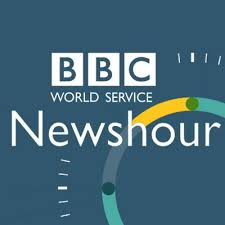
BBC WORLD SERVICE RADIO PROMOTES EXCUSES FOR TERRORISM
As noted at the time, the number of people wounded in that attack was twice misrepresented as being three rather than four (two civilians and two members of the security forces) and the item’s sole interviewee – former PA spokesperson Nour Odeh – was allowed to promote the inaccurate notion that the targets of the attack were Israeli border police officers rather than, as was actually the case, civilians walking on the street.
CAMERA UK submitted a complaint to the BBC concerning those two points.
The response we received from BBC World Service audience relations reads as follows:
“Thank you for taking the time to write to the BBC and the complaint regarding an interview with Nour Odeh bradcast [sic] in our programme Newshour on 21/11/2021. You claim that the interview contained factual errors and was materially misleading and biased.
As is our practice, senior editors at BBC News reviewed the interview and your complaint.
The item on this programme was an attempt to give some context for the violence that had occurred earlier in the day in Jerusalem, the details of which had been reported widely across the World Service, including on the earlier edition of Newshour.
In this interview, the guest’s position as former adviser to the Palestinian Authority was clearly signposted, as was her location in Ramallah, and the audience would have been very clear of her political perspective.
The contributor’s opinions as to why she believed the assailant had carried out the attack were duly challenged by the presenter. While the views expressed may seem unpalatable, they do represent an authentic, and widely held position amongst many Palestinians. As such it was journalistically valid to seek to explore those views in this programme.
I hope the above answers the questions you raised and clarifies our position.”
The BBC’s response does indeed clarify its position. It clarifies that the BBC is not concerned by the lack of accuracy in its portrayal of the number of people wounded in the attack (as was also the case in the BBC News website’s written report on the incident).
It also clarifies that the BBC is quite happy to have provided a platform for Odeh’s deliberate – and, in contrast to the claim in the BBC’s response, unchallenged – misrepresentation of the attack as having been directed at members of Israel’s security forces, as a means of ‘justifying’ Palestinian terrorism.
Let’s look again at that part of the interview:
Odeh: “Look you have to put this in the context of occupier and occupied, whereby the occupying power – Israel – is carrying out several policies and actions that place extreme pressure on Palestinians. It is outlawing, it is criminalising their civil society organisations. It is persecuting their human rights advocates. It is imprisoning their student activists. It is listening in on their conversations and hacking the phones of political and human rights defenders. And at the same time it is rejecting any kind of political dialogue with their leaders. So in that context, confrontation has become the norm of exchange between the two sides.”
Marshall: “So…so direct your response at a military target, not at a civilian then.”
Odeh: “Right well I don’t have the full details of all those who were targeted but my understanding is that the targets were border police. They were the symbols of Israeli occupation.” [emphasis added]
As we noted at the time, the full information concerning the sequence of the incident was in the public domain hours before the interview with Nour Odeh was aired and so Julian Marshall had no excuse not to challenge Odeh’s deliberate falsehood concerning the targets of the attack.
The BBC’s response to our complaint however makes it perfectly clear that it regards its supposed commitment to accuracy, impartiality and “the highest editorial standards” as an optional extra.
Related Articles:
BBC WORLD SERVICE RADIO PROMOTES EXCUSES FOR TERRORISM
BBC REPORTING ON JERUSALEM TERROR ATTACK PROMOTES HAMAS NARRATIVE


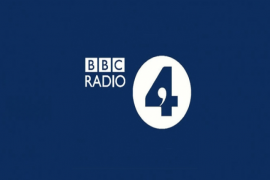
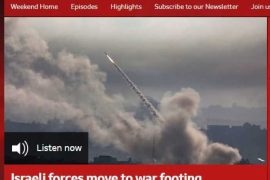
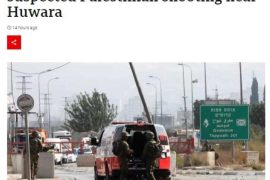
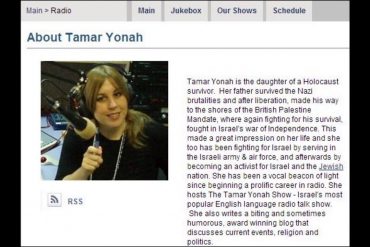
The BBC World Service is a pointless broadcaster who only seeks to fortify the antisemitic life-long indoctrination of their mindless listeners who prefer to listen to the lies and hatred expressed during its pre-selected (biased) interviewees rather than a report of the actual facts leaving the audience to decide on the broadcast. After all, journalism is supposed to do just that present the entirety of the facts rather than a biased pre-determined analysis of how their blatantly biased reporters see the situation. The mere mention of occupation so many times in its opening sentences merely highlights the bias of the BBC and its antisemitic editorial staff. #journalismisdead, #defundthebbc
BBC’s so-called “senior editors at BBC News” are in fact arabists and Jew-haters –
so only biased anti-Semitic garbage is all that can be expected from their review.
What are the next steps. How can you carry this further?
So will CAMERA UK appeal this “ruling” consistent with the BBC’s prescribed process?